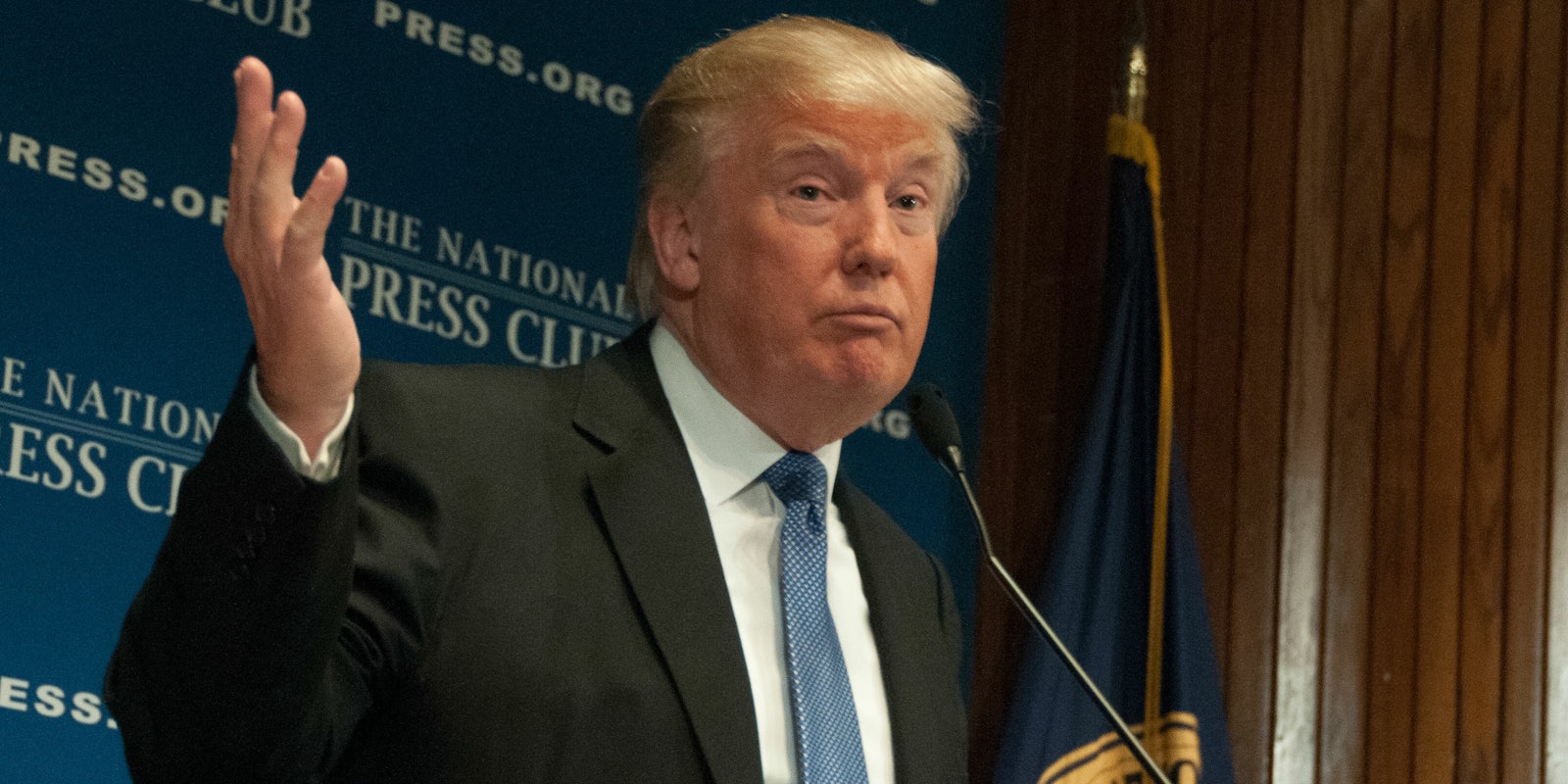Russian accounts created by a troll factory reportedly contacted Trump officials during the 2016 presidential election, according to a New York Times report.
In at least one instance, a member of Trump’s Florida campaign responded to a fake persona, thanking them for their “enthusiasm, creativity, and support.” Based on Facebook Messenger messages obtained by the Times, the Russian account, going by Matt Skiber, asked “Florida for Trump” for support in creating “a YUGE pro-Trump flash mob in every Florida town.”
An unnamed campaign employee came across the message and, two weeks later, recommended they contact Chad Tucker, Trump’s Florida campaign communications director, at his campaign email address. Another persona using the name Josh Milton emailed Tucker claiming to be the leader of Being Patriotic, a social media group that reportedly planned 13 rallies at various locations.
Karen Giorno, the Florida state director for Trump’s campaign, expressed her surprise in a statement to the Times.
“Nobody reasonably would have asked — or even thought to ask — ‘Are you sure you’re not with Russia?’” Giorno said. “It’s just not something that normally you would think you have to watch out for.”
The Times posted the full conversation in its report, but the messages formulated by the Kremlin-backed Internet Research Agency are hidden since the account no longer exists.
Last month, a grand federal jury indicted 13 Russian nationals and agencies for interfering with the 2016 presidential election. Three entities revealed in Robert Mueller’s probe had links to the Internet Research Agency, a Russian “troll farm” used to spread misinformation and sow discord among Americans. Its primary objective was to provide support to the Trump administration while damaging the Clinton campaign.
According to the report, 80 people employed by the Internet Research Agency were tasked to create stolen identities from Americans, fake social media accounts, and fake online personas, to manipulate voters in the weeks leading up to the election. The group reportedly focused its efforts on Florida a critical swing state. They primarily reached out to Trump campaigners to ask for support in creating rallies as the election neared its tipping point.
It’s unclear how successful Russia’s attempts were at rallying support. According to documents outlining the indictment against the Internet Research Agency, the rallies don’t appear to have attracted much attention.


